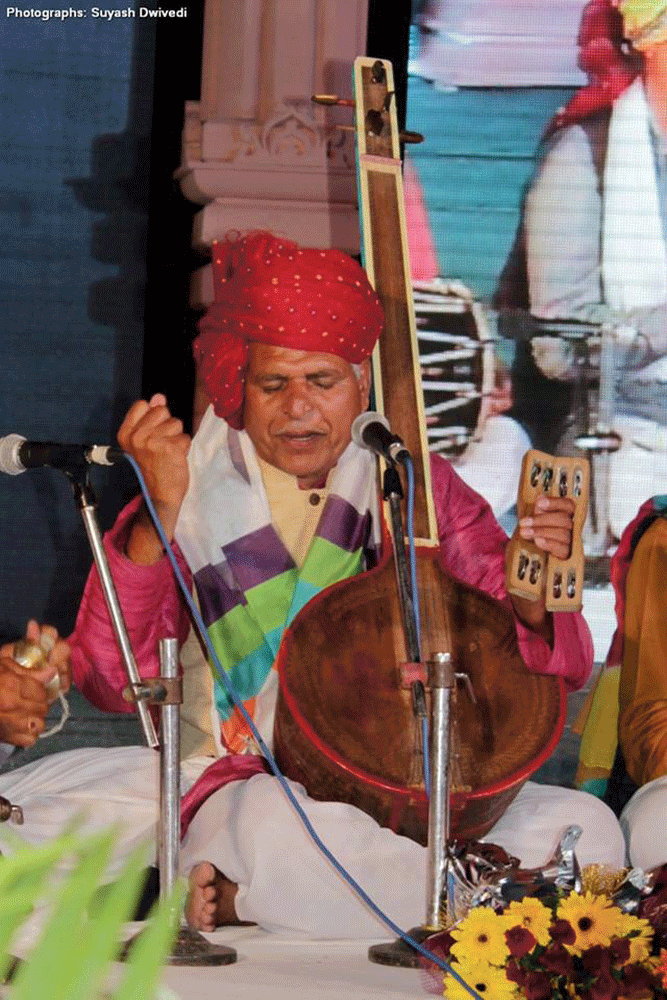
Maya Chandy
The concert “Kabir In Song: A Night of North Indian Devotional Music” took place last Sunday in the MultiCultural Center, where a group of Indian musicians led by Prahlad Singh Tipanya transformed Kabir’s 15th century poems into traditional Indian folk music.
Tipanya and his fellow musicians—who are also his relatives—have held concerts in a myriad of countries, including Britain, Pakistan, and India. They are currently completing a tour through the U.S., during which they have performed at various prestigious universities and institutions with Professor Linda Hess, an exceptionally accomplished senior lecturer from the religious studies department at Stanford University.
Kabir’s poetry is filled with social insight, as he does not refrain from commenting on religious and community practices. The poet’s work has been known to detract from the credibility of the caste system. In fact, many lower-caste Indians still seek refuge in his words, especially because Kabir inspires not only through his beautifully written phrases, but through his equally stirring life story. Kabir began as a low-caste weaver, but refused to tolerate his birth-based standing and encouraged others to look beyond the boundaries they had been confined to by their communities.
As a village educator, Tapanya saw value in Kabir’s poems, so he began spreading Kabir’s message through song when he was just 24. Since then, Tapanya and his family have become incredibly successful, earning prestigious awards such as Malwa Ratna, Shrestha Kala Acharya, and the Sangeet Natak Academy award.
The performance was broken up into several different songs. After each piece, which was performed in Hindi, Hess would read an English translation of the poem that had just been presented.
The first piece introduced the “Guru.” Kabir’s poem and Tapanya’s song expressed that “the Guru is inside each one of us,” and is unrelated to religion, caste, or socioeconomic status.
Tapanya then told his listeners that God is not just a supreme being; God is also shapeless, nameless, and omnipresent. Hess, the only female on stage, jokingly reminded the audience that God is also genderless despite the “he” used for reference.
The songs subsequently discussed the problems that have arisen due to a variety of simultaneously present religions, the power of the human body-mind relationship, and the importance of acceptance and equality. Hess continued to express her belief in the music played and her sense of humor, as she lightheartedly suggested that the songs were the best medicine for her broken hip and later mentioned that a crying child was so emotional because he understood the true meaning of the songs.
Several students attended the event to receive extra credit for their various humanities classes and were initially disappointed to lose their Monday evenings. However, after listening, many suggested they were grateful for the opportunity. One student claimed the “messages illustrated were ideas that could never be reinforced enough.”
After the audience requested three additional songs, the MCC reminded listeners that there are several more concerts coming up in the following weeks. A full list of events can be found at http://mcc.sa.ucsb.edu/.










